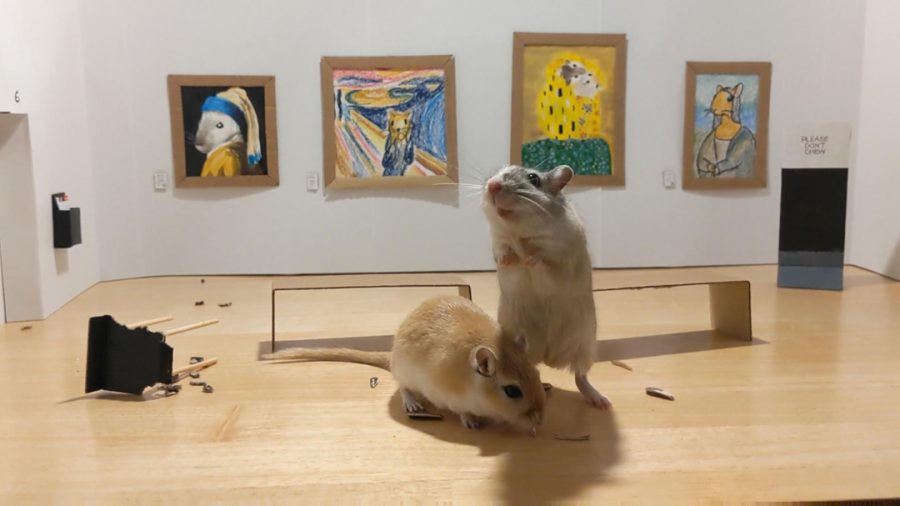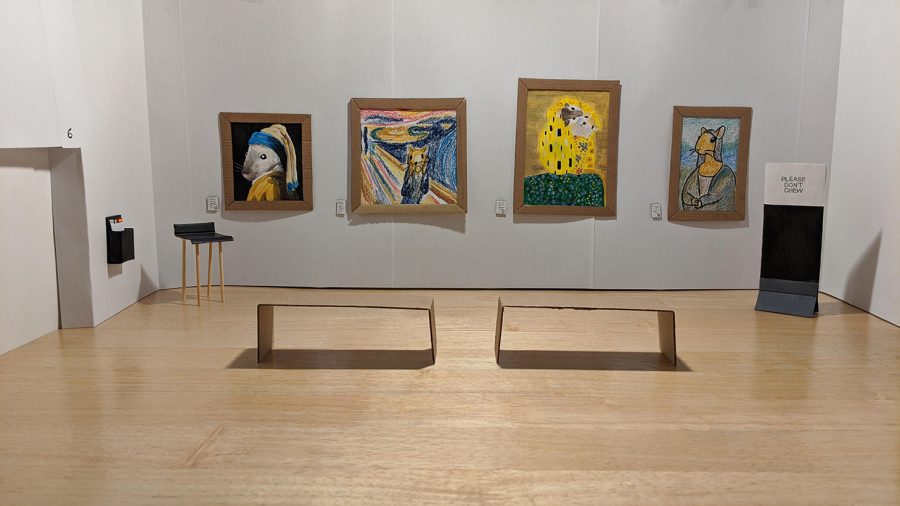“A friend called our new world ‘a ghost ship,’” wrote Nick Cave in a recent installment of his Red Hand Files blog. “She has recently lost someone dear to her and recognizes acutely the premonitory feeling of a world about to be shattered.” The experience has become distressingly common. We have all begun to lose people dear, if not near, to us—artists taken by the disease before their time like Bill Withers, whose “Lean on Me” is now more poignant than ever. Whatever else we’re faced with as the global epidemic progresses, we are entering a period of deep mourning that Cave encourages his fans to treat with serious respect.
To the list of those we mourn, we now must add legendary singer and songwriter John Prine, who died from COVID-19 complications yesterday. Prine was an artist who didn’t so much achieve fame as an almost indispensable presence in American culture that runs much deeper and will last longer. He wrote songs so good, Kris Kristofferson once joked “we’ll have to break his thumbs.” (Kristofferson discovered him playing in the Chicago folk scene in 1971. Their meeting was, said Prine in 2019, “a Cinderella story.”) Prine could count himself among Bob Dylan’s favorite songwriters, and was sometimes called “the next Dylan.” (In his Twitter tribute, Bruce Springsteen writes, “John and I were ‘New Dylans’ together in the early 70s.)
Prine wrote with more folksy good humor than Dylan, however, a much cheerier theological bent, and with more concern for telling stories with straightforward emotional impact, without veering into sentimentality. But like Dylan, every songwriter in folk, bluegrass, and country has paid homage to him as a muse and covered his songs. Bonnie Raitt made his “Angel in Montgomery” famous and called him “a true folk singer in the best folk tradition, cutting right to the heart of things, as pure and simple as rain.”
As has many great folk singers, Prine paid ample tribute to his forebears: A.P. Carter, Hank Williams, “Cowboy” Jack Clement, Tex Ritter.… building a bridge between them and contemporary songwriters like the Avett Brothers, Bon Iver, Justin Townes Earle, and Jason Isbell, who have all covered Prine songs. (See him with Sturgill Simpson at the top.) He was indie before indie—breaking from the major labels in 1981 and establishing his own label, Oh Boy Records. And he was genuinely “Americana” in that he wrote of rural working-class issues in a working-class voice, inspired to pen his first major song “Paradise” by the destruction strip mining wrought upon his father’s Kentucky hometown.
“Paradise” plays out like a John Sayles film, with local Green River references and images of shooting pistols at snakes and pop bottles at “the abandoned old prison down by Airdrie Hill.” The song’s third verse depicts the mindless violence of strip mining: “they tortured the timber and stripped all the land,” he sings, “then they wrote it all down as the progress of man.” It was the first song he recorded for his self-titled 1971 debut and established a long tradition of protest music both wistful and witty, like the perennially relevant “Your Flag Decal Won’t Get You Into Heaven Anymore,” which tells flag-waving chauvinists, “They’re already overcrowded from your dirty little war.” He tells the story of writing the song all the way back in 1968 in the live performance from 2010’s In Person & On Stage below.
Prine also wrote from the perspective of a veteran (he served in the army in the 60s), whose country had let him down in the Vietnam debacle and subsequent bloody misadventures. In “The Great Compromise,” he used the allegory of a jilted lover to express great disillusionment.
Many times I’d fought to protect her
But this time she was goin’ too far
Now some folks they call me a coward
Cause I left her at the drive-in that night
But I’d druther have names thrown at me
Than to fight for a thing that ain’t right
I used to sleep at the foot of Old Glory
And awake in the dawn’s early light
But much to my surprise
When I opened my eyes
I was a victim of the great compromise
The song’s title and refrain reference the 1787 Constitutional Convention, suggesting that part of his awakening to the country’s flaws includes a recognition that they had been built in from the start. “Sam Stone,” his portrait of a Vietnam vet dying slow from heroin addiction, a song once covered by Johnny Cash, perfects the directness and simple lyricism of country ballads to devastating effect: “There’s a hole in daddy’s arm where all the money goes/Jesus Christ died for nothin I suppose.”
Songs like “Sam Smith” and “Paradise” grab hold with images and observations that crystalize the kind of down-and-out American suffering that features all the time in bestselling nonfiction books and longform articles, but never gets addressed in any meaningful way. But Prine could also lighten up—a lot—with comic-romantic gems like “In Spite of Ourselves,” written for a film in which he starred as Billy Bob Thornton’s brother. He recorded the song as a duet with Iris DeMent, the title track for an album of covers with other famous women country singers like Emmylou Harris, Lucinda Williams, and Patty Loveless.
Full of profane, downhome humor (“he’s got more balls than a big brass monkey”), the tune is representative of one of Prine’s many songwriting personae in a career impossible to sum up in a neat and tidy way. Suffice it to say that Prine’s death from COVID-19 at age 73—after his many decades celebrating and lamenting the struggles of ordinary people and lambasting the greed and belligerence of the U.S. government and corporations—underlines the plain truths of his songs with tragic irony. Prine survived cancer surgery in 1998 and the removal of a lung in 2013, yet he continued to perform into his final years, releasing a follow-up to In Spite of Ourselves in 2016 and his final album, The Tree of Forgiveness, in 2018, a “trunkful of supremely generous American music,” wrote Ian Crouch in a New Yorker review. See his NPR Tiny Desk performance from 2018 below.
Another writer who had seen and documented what Prine had over the years might have grown bitter. But we can mourn his death knowing that he seems to have had little unfinished business with his god or his fellow human beings. “When I get to heaven,” he speak-sings in the intro to one of his final recordings, “I’m gonna shake God’s hand/Thank him for more blessings than one man can stand/Then I’m gonna get a guitar/And start a rock ‘n’ roll band/Check into a swell hotel/Ain’t the afterlife grand?” We can hope, at least, if we’re so inclined, that it’s at least a kinder place than the world Prine left behind. And we can be grateful he left a legacy of timeless music that always seems to speak to the sadness, disappointment, anger, and raw, in-spite-of-it-all tragicomedy of the American predicament.
Related Content:
Bill Murray Explains How He Was Saved by John Prine
Tom Petty Takes You Inside His Songwriting Craft
Bob Dylan Releases a Cryptic 17-Minute Song about the JFK Assassination: Hear a “Murder Most Foul”
Josh Jones is a writer and musician based in Durham, NC. Follow him at @jdmagness







